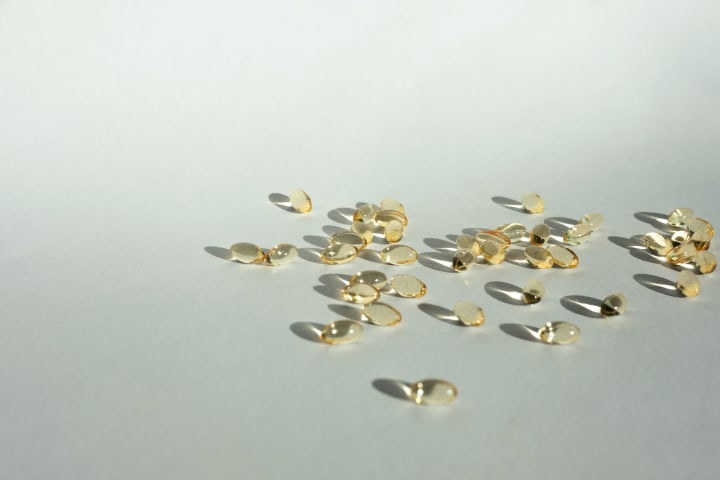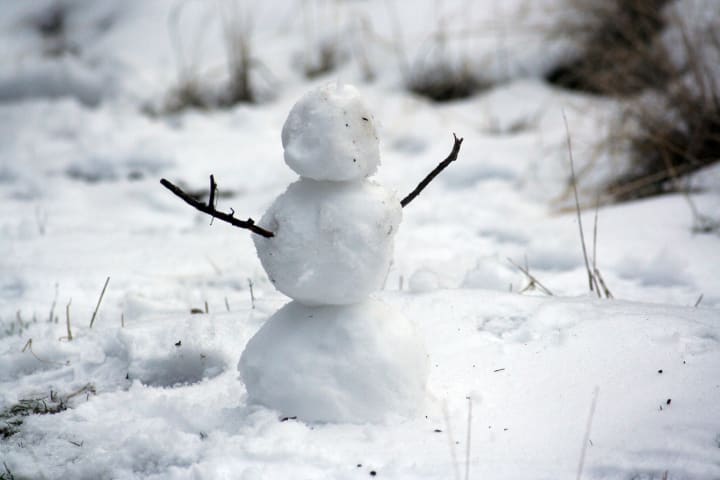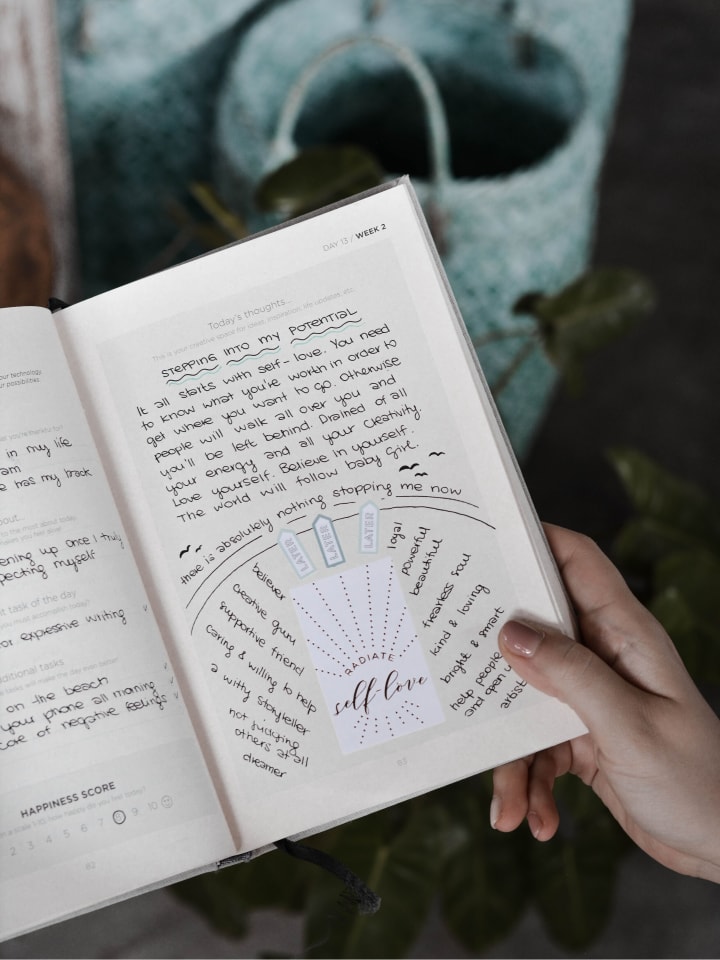7 Pagan Ways to Beat SAD
Natural solutions to defeat seasonal affective disorder

Imbolc is one of my favorite holidays. It's a holiday of hope for an end to the drudgery of the winter months.
I suffer from Seasonal Affective Disorder (SAD), which is part of why Imbolc is so important to me. It helps remind me that spring is on the way.
Nearly ten percent of North Americans deal with (SAD). The condition can be debilitating and can have a negative effect on some people's lives.
SAD is defined as depression that tends to recur each year, chiefly during the late fall and winter, and is associated with shorter hours of daylight (Merriam-Webster Dictionary, 2022). However, it can also occur during the spring and summer.
During the coldest, darkest part of the year, many people also have to deal with depression. But, for some, SAD isn't crippling. It's possible to get through the day-to-day grind without much effort. They may need some comfort food at the end of the day, but they could do it.
For others, SAD can stall their life during the winter months. It can lead to lower job performance, self-harm ideations, weight gain, and too much sleep.
There are many ways to deal with SAD conventionally, such as antidepressants and therapy. But it's always good to have other ways to help yourself out as well.
As a witch, I tend to gravitate toward more natural ways to help with my depression, and over the years, I have found a few different ways that help.
Get More Vitamin D
Vitamin D is responsible for helping our body absorb calcium. So it's vital for bone health, especially for those with a history of conditions like osteoporosis in the family.
It has also been linked to cognitive health. Some studies have shown cognitive decline is associated with lower levels of Vitamin D in the blood.
Our primary source of this vitamin comes from exposure to sunlight. During the summer, we're more active and spend more time outside. There are also more hours of daylight, which increases exposure.
During the winter, it can be more difficult.
In light of this, many foods we enjoy have been fortified with Vitamin D, such as cow's milk, soy milk, orange juice, and some cereals. There are also supplements you can add to your daily vitamin routine. But some foods are a natural source of this vitamin.
Changing your diet to include more fish, like salmon, herring, sardines, and canned tuna can boost your mental health. Egg yolks and mushrooms are also excellent sources.

Light Box Therapy
One alternative to taking Vitamin D supplements is using light box therapy. This is done using a special light that mimics the sun.
While this won't give you a dose of Vitamin D, it has been shown to put people into a better mood. The light tricks the body, essentially, and causes your brain to release the chemicals it normally would on a sunny day.
You can get a light box without a prescription. However, like many other consumer products, you'll want to check the specifications before spending money.
A light box should give 10,000 lux of light and produce only small amounts of UV light to be effective. Too much UV light can cause damage to your eyes.
This therapy works best in the morning and should only be used for a limited period each day. The box should be about 24 inches from you, and you have to keep your eyes open but not look directly at the light.
It fits easily into a morning routine of sipping coffee and reading a good book.

Earthing Or Grounding
Earthing and grounding are great ways to recharge the soul. Spending time physically interacting with nature has many benefits.
Studies show that physical interaction with the Earth, such as standing barefoot in the grass or resting a hand on a tree, alters the body's physiology.
When you set your feet on the ground, your body automatically syncs up with Earth's natural electric charge. This can lower pain, stress, and inflammation, along with improving your blood flow. After earthing, your sleep will improve, and you'll also have more energy.
And while all of that is important, you'll also get the extra spiritual kick of connecting with Mother Nature.
While getting to the Earth in the winter might be difficult, you can purchase grounding products that can help. You can also go out and build a snowman. The frozen water acts as a conduit between the Earth and your body, so you will get the same effects.

Meditate
There have been several studies done that show the positive effects meditation can have on your mental health.
The physical action of meditating can help you slow down your heart rate, relax your body, and calm your breathing. In addition, when you focus on meditation, you interrupt the distressing thoughts you are experiencing, which helps your state of mind.
Proper meditation teaches you different techniques to help you process your emotions.
For example, you are at work and realize you've missed an important deadline. Now you're stressing about the consequences for your job and how much you've affected the company with your forgetfulness.
In meditation, you learn to validate your fear, disappointment, and shame. You recognize that those are normal reactions. But you also slow down and learn to control your thought process.
Instead of thinking, "I'm going to be fired," you might instead find yourself thinking, "How can I fix this," or "I made a mistake, and I can rectify it."

Forgiveness
As pagans, we tend to follow the natural course of the seasons.
In spring, we can experience the joy and energy of new growth. Summertime is for tending to your gardens to have food for the winter. Finally, during the autumn, we harvest and get ready to hunker down for the winter.
Then in winter, we slow down a bit. There is no food to gather, there's less sunlight, and the weather can prevent you from spending too much time outside.
This is normal in nature, too. When you think about the wildlife in your area, imagine what they are doing during the year.
The bear sleeps through the entirety of the winter. Raccoons have their babies in late February, so they spend their spring tending to the growth of their offspring.
During summer, reptiles and insects come out to play. Bees have shorter lifespans, but they work hard to ensure the hive survives. They are busy zipping from flower to flower and rarely slow down.
In the autumn, squirrels store nuts to last them through the winter. They don't hibernate, but they don't like to venture out if they don't have to.
When you recognize that you are part of nature, you can learn to forgive yourself for behaving differently during different seasons. It's a normal part of nature.

Exercise
Exercise is one of the best ways you can help yourself when it comes to seasonal depression. Getting your body up and moving provides so many benefits that we're not always aware of.
When you get moving, your blood flow increases, which brings more oxygen to your brain. This can help to clear brain fog and increase focus. Your body also releases endorphins, which gives you that "high" feeling after you've pushed yourself to your limit.
Many people also prefer to do social activities, like team sports. The extra socializing helps to boost your mood as well. And over time, exercise will increase your confidence which is good for your mental well-being.
If you're exercising out in nature, it's even better. You might get some earthing in while immersing yourself in Mother Nature.
Don't forget, the sweat-induced state you get from spring cleaning also counts as exercise. So don't be afraid to throw yourself into it around Imbolc!

Journaling
Journaling is one of my favorite go-tos when it comes to mental health.
It can provide you with a safe outlet for expressing your feelings. Nobody else will read your journal, so you can say exactly what you feel. Writing it down can help you process it and help you recognize any patterns.
Studies have shown that journaling reduces anxiety and can even help with physical healing. One study in New Zealand showed that those who journaled about their feelings after a biopsy healed faster than those who only wrote about their daily activities.
Journaling is also a great way to have a flow activity, which is an activity that takes all of your focus and allows you to live in the moment. Essentially, it's an act of mindfulness during your day.

Sources
Brennan, D. (2021, October 25). Mental Health Benefits of Journaling. WebMD.
Jones, T. (2018, September 12). 9 Healthy Foods That Are High in Vitamin D. Healthline; Healthline Media.
Mayo Clinic. (2017). Vitamin D. Mayo Clinic.
Mayo Clinic Staff. (2017, September 27). Depression and anxiety: Exercise eases symptoms. Mayo Clinic.
Menigoz, W., Latz, T. T., Ely, R. A., Kamei, C., Melvin, G., & Sinatra, D. (2019). Integrative and lifestyle medicine strategies should include Earthing (grounding): Review of research evidence and clinical observations. EXPLORE, 16(3).
Merriam-Webster Dictionary. (2022, December 31). Merriam-Webster.com.
Oschman, J., Chevalier, G., & Brown, R. (2015). The effects of grounding (earthing) on inflammation, the immune response, wound healing, and prevention and treatment of chronic inflammatory and autoimmune diseases. Journal of Inflammation Research, 8, 83.
Raypole, C. (2020, January 29). Meditation for Depression: Why It Works and How to Start. Healthline.
Seasonal affective disorder treatment: Choosing a light therapy box. (2016). Mayo Clinic.
Sharma, A., Madaan, V., & Petty, F. D. (2006). Exercise for mental health. Primary Care Companion to the Journal of Clinical Psychiatry, 8(2), 106.
Williamson, L. (2022, November 30). As winter approaches, seasonal depression may set in for millions. Www.heart.org.
About the Creator
Amanda Jeffery
Amanda is a creative writer, journalist and witch. She has been writing since she was knee high to a grasshopper, and is a freelance writer. She has published a fantasy novelette, The Fourth Year Spell, which can be found on Amazon.






Comments
There are no comments for this story
Be the first to respond and start the conversation.